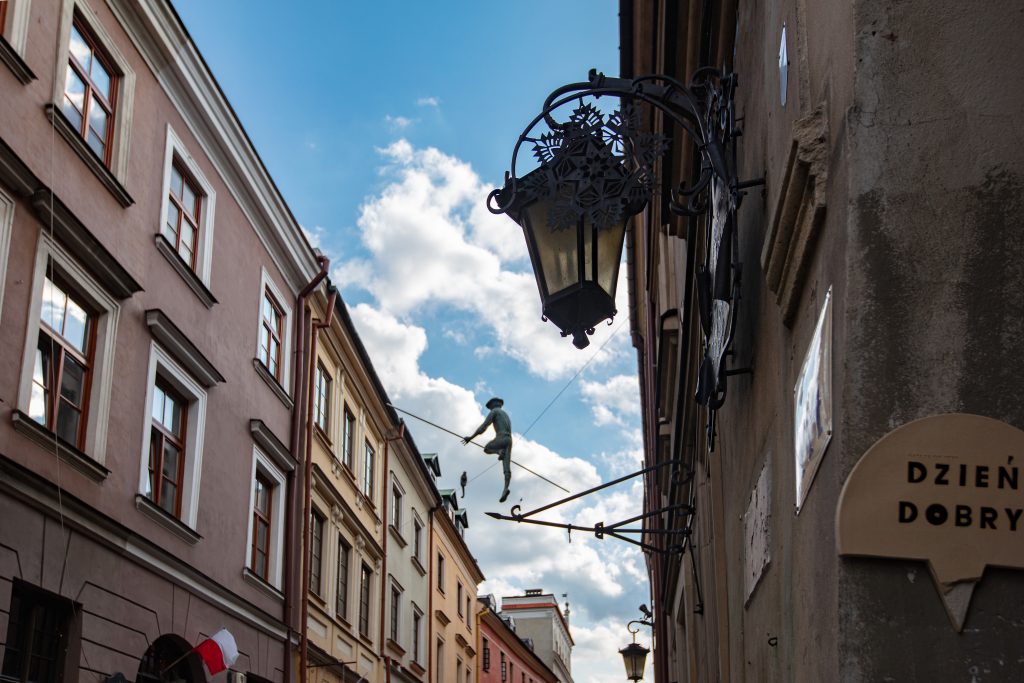
“Symbolic interactionism and creative processes in turbulent times”
Symbolic Interactionism is integrally linked to the concept of creativity which is evident especially in blumerian variant of the theory. Blumer emphasizes the inherently creative process of interpretation, writing: “Interpretation is a formative or creative process in its own right. It constructs meanings which, as I have said, are not predetermined or determined by the independent variable”. Using Mead’s concept of the “I” – the spontaneous and creative aspect of the self – Blumer also highlights a dynamic perspective on human agency within social contexts and norms. He emphasizes individuals’ capacity to navigate, challenge, and even overturn the social structures and rules that influence their surroundings. Referring to the works of Florian Znaniecki (who also laid the foundations for symbolic interactionism and wrote about creativity), Blumer conducted a methodological reflection on human documents and the nature of interpretation.
Creative processes appear in the classical work of interactionists in various contexts. Everett C. Hughes refers to a creative person as an autonomous individual who is able to skillfully and selectively respond to expectations of the insiders of his group and ‘others’ (“Sociological eye”). Anselm Strauss distinguished ‘routine’, ‘innovative’ and ‘creative’ actions, defining creative act as innovation at its greatest, resulting in very major changes in collective perception, values, and action (“Continual permutation of action”). In methodological context, together with Barney Glaser they called category building and theory generating a creative endeavour. Krzysztof Konecki stated that originality is not a sufficient component of creative work; usefulness, adequacy, and the value assigned by a specific audience are also necessary. Goffman writes a lot about well designed (though conscious or unconscious) impression creation. Howard Becker in ‘Art Worlds’ views creativity more narrowly, as a feature of artists, in contrast to distributors and managers involved in the activities within the art field. Among contemporary sociologists drawing inspiration from the ideas of Mead, Hans Joas developed the theory of creativity of action. These are just some of the many threads related to creativity in Symbolic Interactionism.
The dilemma of whether creativity is a trait specifically human, has been revived with the widespread availability of artificial intelligence tools, which is also reflected in the writings of interactionists. A related dilemma concerns the extent to which creativity is a trait developed over time through interaction, versus an innate quality inherent to a person
We hope that the multifaceted nature of creative processes will also be reflected in the conference presentations, such as the ones listed below though this is not an exhaustive list:
- Processual aspects of identity
- Cultural integration and disintegration
- Intercultural communication
- Social worlds and boundary objects
- Art worlds
- Creativity in artistic work
- Reflexivity in the context of history and heritage
- Creation and co-experiencing of popular music
- Ethnic food cultures and their meanings
- Symbolic construction of communities
- Creativity in discovery and construction of a theory
- Creative writing
- Creativity in research process
- Performative actions
- Redefining key categories in the face of ecological threats
- Dark side of creativity; effects of unrestrained creativity
- Creativity and AI
- Howard Becker’s work and the impact of his ideas on contemporary research, especially those based on the assumptions of symbolic interactionism; a thematic session is planned
The conference will concern also other aspects of symbolic interactionist theory and organisers encourage other sessions related to Symbolic Interactionism, Grounded Theory and other sessions which may not fit directly into the conference theme but stimulate open discussion. We accept both theoretical, methodological and empirical proposals.
